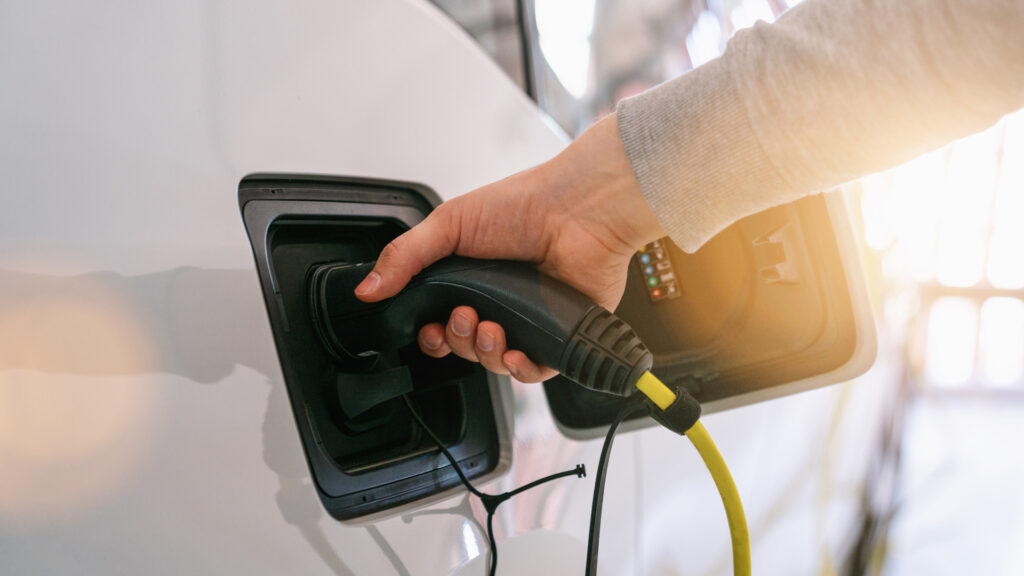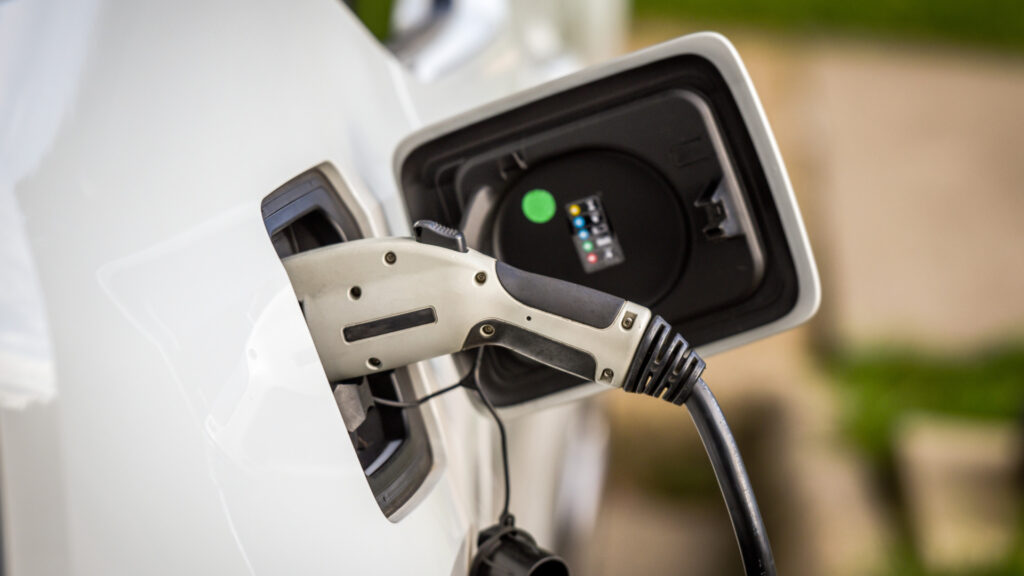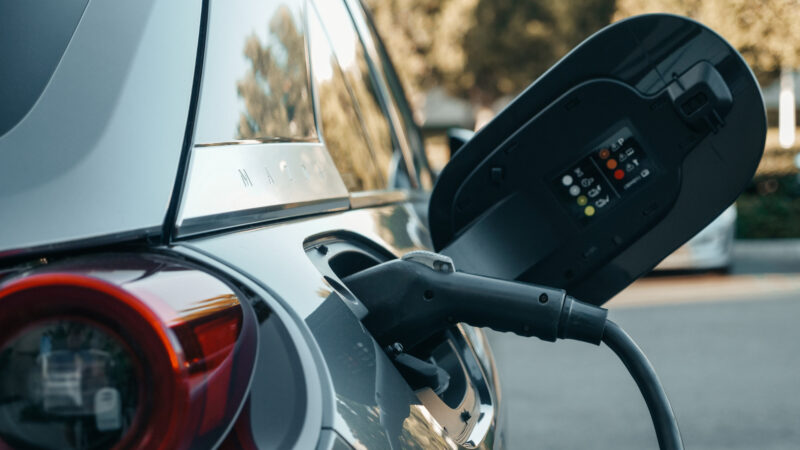Table of Contents Show
It seems like everyone is driving an electric vehicle these days. However, these fancy vehicles may bring about some significant tax changes.
While drivers may love their quieter and greener vehicles, some state governments don’t feel the same. It’s causing some of them a severe problem.
Today, we’re looking at why electric vehicles cause some states to consider charging drivers by the mile. Buckle up, and let’s get started!
What Are Electric Vehicles?
Passenger vehicles have used internal combustion engines since the late 1800s. Technology advancements have occurred quickly over the last few decades in various market segments, including automobiles. Electric vehicles have quickly replaced pollution-causing vehicles.
Instead of using gasoline to power the vehicle, electric automobiles use batteries to store electricity. A signal gets sent to the motor controller when the driver presses the accelerator pedal. It determines the amount of power to deliver from the electric motor to the wheels to propel it.
Companies like Tesla, Rivian, and Lucid now go toe-to-toe with manufacturers like Ford, Chevrolet, and Nissan. Competition drives these companies to increase range capabilities, reduce charging times, and expand their offerings.

Why Are States Considering Charging by the Mile?
Many drivers don’t realize they pay tax every time they buy a gallon of gas or diesel. These taxes often fund transportation infrastructure, environmental efforts, and other critical public services. The amount of tax depends on the type of fuel and the state.
With so many drivers purchasing electric vehicles, this creates a situation for some states. Since these vehicles run on batteries, people don’t pay the same fuel taxes. As a result, state funds begin to dwindle as green vehicles grow in popularity.
Unfortunately, officials have to make up this money somewhere. Some states have considered charging drivers based on the number of miles they drive to solve this problem. This would likely become a part of the annual registration process, and drivers would have to report their mileage.
Like it or not, those using the roads should pay for maintenance. While this system isn’t perfect, it’s a step towards coming up with a workable solution.
One major hurdle is figuring out how to report mileage driven in other states. However, just because it has some flaws now doesn’t mean it’s not worth considering.
How Much Is Tax on a Gallon of Gas?
Fuel taxes for vehicles that use gasoline vary considerably from state to state. This is why you can see very different prices at the pump from one state to the next. One of the best examples is along Interstate 10 between California and Arizona.
As of this writing, the last reported price at the Arizona Travel Place is $3.59 per gallon. If you wait until you reach the Valero, approximately 10 miles across the California border, you’ll pay $5.19 per gallon.
This is mainly because Arizona only charges a $0.18 tax per gallon of unleaded gasoline. On the other hand, California charges $0.54 per gallon for the same fuel. Unfortunately, California takes second in charging the most taxes on gasoline.
The award for the most taxes charged goes to Pennsylvania. If you have to fill up in the Keystone State, you’ll pay $0.61 per gallon.
Other tax-heavy states include Washington ($0.49), Illinois ($0.42), and Maryland ($0.42). A few of the lowest gas-tax states include Alaska ($0.08), Connecticut ($0.15), and Hawaii ($0.16).
In addition to state fuel taxes, the federal government also wants to take their cut too. This results in approximately $0.18 added to each gallon of gasoline. When combined with state tax, drivers in the most expensive states pay up to $0.80 per gallon in taxes.

How Much Is Tax on a Gallon of Diesel?
Diesel drivers aren’t off the hook for paying fuel taxes. Just like gasoline, diesel vehicle owners must pay a federal fuel tax. This costs roughly $0.24 per gallon, slightly more than the federal gasoline tax.
Again, just like gasoline taxes, states set surcharges for diesel fuel. Pennsylvania is at the top of the list for states with the highest diesel fuel taxes. Drivers will pay $0.78 per gallon of diesel when driving through Pennsylvania.
Unfortunately, you’ll want to avoid a few other states too. Some other states with high diesel taxes include Illinois ($0.45), Indiana ($0.49), and Washington ($0.49). However, if you want to save a few bucks when filling up, consider Alaska ($0.08), Florida ($0.04), and Oklahoma ($0.19).
Keep in Mind: How Much Does a Gallon of Diesel Weigh? Click the link to find out!
Benefits of Electric Vehicles
While electric vehicles won’t work for everyone, owners enjoy many benefits. Let’s look at some pros of owning one of these automobiles. You never know; it might be your next car purchase.
Environmental Friendliness
Many people passionate about going green and caring for the environment switch to electric vehicles. This is because electric cars have zero tailpipe emissions.
Unlike internal combustion engines, EVs don’t emit pollutants as they travel down the road. This results in reduced greenhouse gas emissions, which many point to as a significant contributor to climate change.
We feel it’s important to mention that while EVs have a reputation for being environmentally friendly, they’re not perfect. Charging stations don’t magically create their own power. So where does it come from? Many times it’s a coal-burning power plant, which is far from environmentally friendly.
Additionally, the mining of the minerals used in the batteries for EVs has questionable ethics at best. So while the final product is more beneficial for Mother Nature than its counterpart, it’s not as perfect as many would lead you to believe.
Energy Efficiency
Another significant benefit of owning an EV is that they’re incredibly efficient. Very little energy gets wasted when the driver presses the accelerator pedal. The power gets transmitted from the battery bank directly to the wheels.
EVs continue to evolve and continually become more efficient. This results in longer driving ranges and fewer stops at charging stations.
Reduced Dependence on Fossil Fuels
Many drivers use fossil fuels like oil and gasoline to keep their vehicles running. Unfortunately, these aren’t renewable resources, and the volatility in the market constantly changes.
We often see a tremendous amount of geopolitical tensions surrounding fossil fuels, which results in variable fuel prices. EV drivers don’t have to worry about dependence on fossil fuels and enjoy more consistent pricing.
Keep in Mind: Have you heard of a Class E RV? Read on to see if it will ever get on the market!

Lower Operating Costs
While some EVs are more expensive, they can pay for themselves over time. If you charge your EV at home, you no longer have to stop at the fuel station. This is generally cheaper than filling up with gas or diesel and eliminates those impulse soda or snack purchases.
However, it’s more than just their lack of fuel where drivers benefit. EVs also have reduced maintenance intervals and improved efficiency through regenerative braking. Using your brakes to put some energy back into your battery bank can add up over time.
EVs generally also have a longer lifespan than their internal combustion engine competition. The longer it lasts, the more it pays for itself because you don’t have to worry about oil changes or stopping at the gas station.
Noise Reduction
One of the first things drivers notice when they get behind the wheel is how quiet electric vehicles run. This is because it doesn’t have noisy engines or exhaust systems to worry about.
This noise reduction especially helps in urban environments where drivers accelerate more often. If you want a more peaceful or tranquil driving experience, an EV might be right for you.
Are Electric Vehicles Worth It?
Electric vehicles can be worth it, but they’re not for everyone. These automobiles can often get as many miles as gas or diesel vehicles, but the charge times are substantially longer.
Tesla states drivers can get approximately 200 miles range by charging for about 15 minutes. However, unless there’s a long line at the fuel pump, this is much slower than filling up a gas tank.
An electric vehicle might be worth it if you’re not going long distances regularly. On the other hand, if you log many miles, the extended time spent charging or the worry of finding a charging station might not be worth it.
The future looks bright when it comes to electric vehicles. Let’s hope it doesn’t cost us more taxes if we switch.






